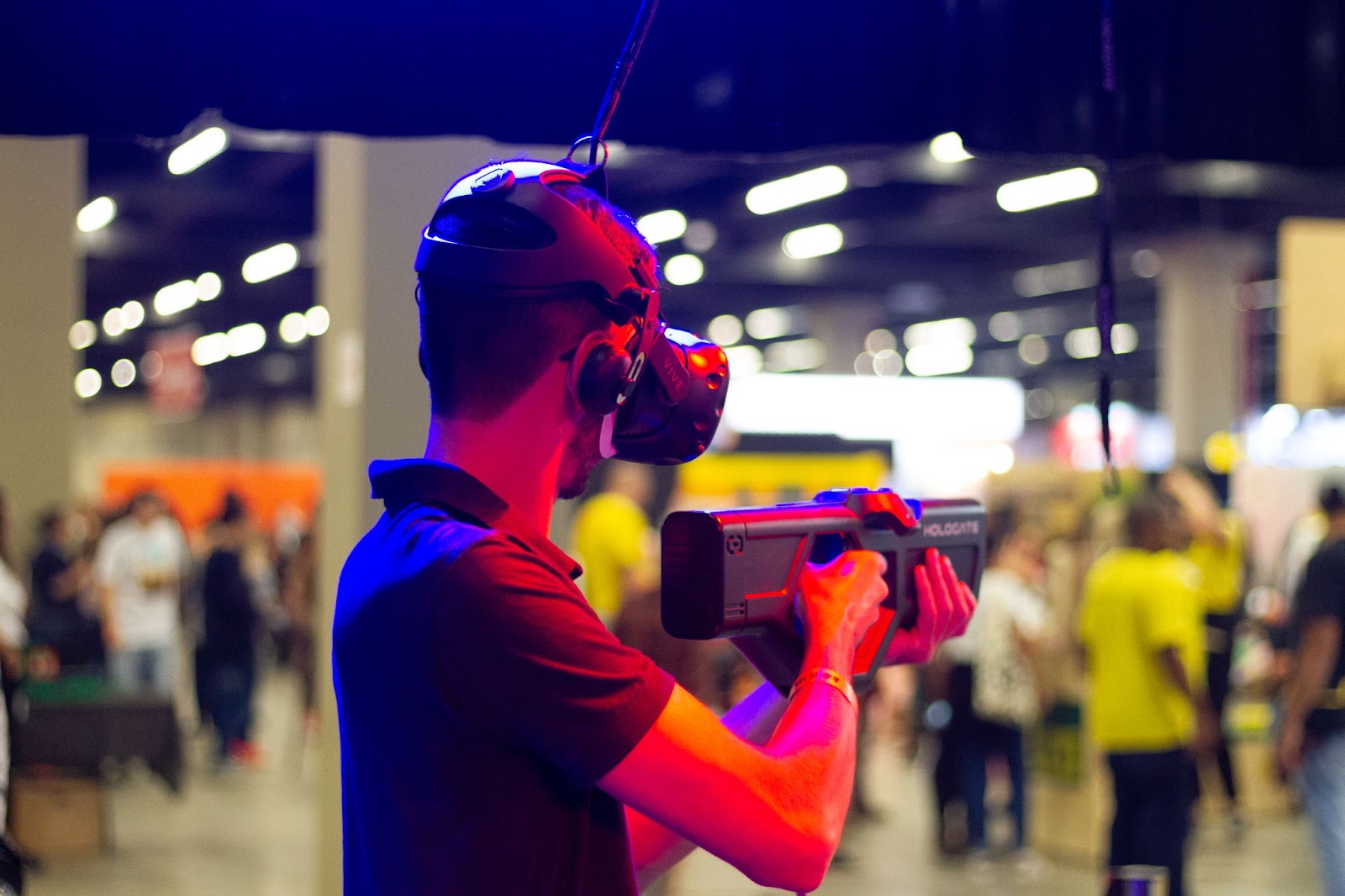
Esports, or electronic sports, have rapidly risen in popularity over the last decade. It has become an increasingly popular form of entertainment, with millions tuning in to watch professional gamers battle it out for prestigious titles. As a result of this growth in viewership and engagement, esports have become a viable option to be included as an Olympic sport.
However, despite the potential that esports holds to become an Olympic sport, there are several issues and challenges that still need to be addressed before it can gain approval from the International Olympic Committee (IOC). This article will discuss those issues and explore how they can potentially be resolved. It will also look at how esports has been accepted by other organizations such as the Global Association of International Sports Federations (GAISF) and why its inclusion in the Olympics is currently uncertain. Finally, this article will consider whether or not esports are ready to make the leap into the Olympics and what the future holds for them.
What Esports Are in The Olympics
Esports is an emerging form of sport in which players compete against each other in video games. It has grown exponentially in recent years and is now recognized as a legitimate form of sport by the International Olympic Committee. As the recognition of esports in the international sports arena grows, more countries are looking to have their players compete in the Olympic games. In this article, we will discuss the challenges of esports in the Olympics.
Definition
Esports, or competitive video gaming, is a form of competitive online competitions or tournaments in multiple genres, such as fighting games and first-person shooters. It has become increasingly popular in recent years due to the rise of internet streaming video websites like Twitch.tv and YouTube Gaming. The concept of esports as defined by the International Olympic Committee (IOC) is that it should be considered a sporting activity governed by the same principles as any other physical sports event since 2005. The IOC considers it to be socially and culturally significant enough to warrant Olympic recognition and participation.
Esports allows players to compete at the highest levels of skill and strategy with amateur players from around the world through online tournaments, often referred to as “LANs” (Local Area Networks) or “cybergaming” thanks to its expanding presence on modern consoles including PlayStation 4 and Xbox One (both used for an Esports tournament based on FIFA). The most common types of esports competitions are in team-based video games where teams battle each other while trying to accomplish objectives like capturing an area or defeating opponents. Some popular examples include titles such as League Of Legends, Counter Strike: Global Offensive, Rocket League and Dota 2. While there is a huge variety of titles throughout different genres played professionally, some have become well distinguished through their wide appeal at amateur level. Additionally the popularity of Esports has grown due to it becoming broadcasted on television networks alongside platforms like ESPN+ making them more accessible than ever before.

Popular Games And Genres
Esports can come in all shapes and sizes, but some of the most popular genres and games include:
First-Person Shooter (FPS): Games such as Overwatch, Counter-Strike: Global Offensive (CS:GO), Call of Duty and Quake are popular titles in this genre. This genre requires the gamers to observe their environment cautiously while using their mouse and keyboard or controller to maneuver through the virtual environment while aiming to be an attacker or defender.
Multiplayer Online Battle Arena (MOBA): Games such as League of Legends and Dota 2 have become a major part of esports. This is a team-based game, typically involving two teams competing against each other in an effort to destroy their opponents’ base structures.
Battle Royale: This type of competition is about survival; players compete against each other for one winner who must outplay their opponents strategically, employing tactics such as elimination, hide & seek and ambush. PlayerUnknown’s Battlegrounds (PUBG), Fortnite and Apex Legends exemplify this genre.
Sports Simulation Games: Game titles including FIFA Soccer, NBA 2K18/19/20/21 and Rocket League are capturing the sports simulation market segment within esports. These titles utilize existing gaming platforms such as Xbox One X or PlayStation 4 Pro, along with a PC monitor/TV screen with traditional inputs such as mouse + keyboard or gamepad controller to capture competitive sports simulation at its best!
Esports in The Olympics
Esports have been gaining momentum for years now, and it is no surprise that the International Olympic Committee (IOC) has taken steps towards inclusion. While it is encouraging to see the IOC recognizing the potential of esports, there are a few challenges to address before it can be officially part of the Olympic Games.
In this article, we will discuss the challenges of bringing esports to the Olympics.
Challenges of Bringing Esports to The Olympics
There are several challenges that face the Olympic Committee in regards to incorporating esports into the Olympic enterprise. Each of these will need to be taken into consideration in order to successfully incorporate esports into the Olympics.
1) Uniqueness of Esports: The complexity and variety of games coupled with the difficulty developing a standardized set of rules makes it difficult to create a framework for inclusion within the Olympics. Different games require different structures, controls, competitions, and organizations that may not fit within traditional Olympic models.
2) Diversity and Popularity: With hundreds of games currently being played worldwide and dozens more being added each year, it is impossible for one sport or country/region to represent all participants in this newly established domain, nor would it be fair or practical. Additionally, due to their popularity in certain countries/regions, some esports do not have global relevance yet have tremendous potential amongst players from certain nations/cultures.
3) Integrity: The lack of standard regulations across different platforms creates the potential for match-fixing and other cheating techniques which could result in serious damage to both athletes and brands associated with esports internationally if not appropriately managed by authorities. This is further exacerbated by anonymous betting cultures which persist on some platforms.
4) Culture: Esports also face cultural challenges laid out by existing stakeholders such as sports leagues/federations who may view video game competitions as counterproductive activities compared with traditional physical sports activities held during an Olympic Games season. Additionally, there are still fraught perceptions surrounding gamers themselves; that they are lazy “basement dwellers” or only attracting them out ‘gamers night’ style events may hinder its broader appeal amongst mainstream audiences which limits its presence at high-profile televised events such as the Olympics becoming another difficulty facing its inclusion within such major sporting events platforms like ESPN or NBC given their focus on physical life sports viewership over gaming engagements like broadcasts from Twitch (which has 180m+ monthly active viewers).

Benefits of Including Esports in The Olympics
For decades, the Olympic Games have been a global celebration of physical sporting excellence, bringing together millions of fans across the world to enjoy the best that sport has to offer. But with the rise of esports in recent years, there has been a push towards also recognizing digital gaming as a legitimate discipline of play. Including esports as a part of the Olympics would not only serve to broaden the Games’ appeal globally but also promote pathways for fans and athletes to get involved in sociable and competitive video gaming.
There are many advantages that would come with introducing esports into the Olympic programme. Here are just some potential benefits:
- Increased participation: Introducing an accessible type of digital sport into the Olympics can help to bridge physical and virtual worlds. This could attract new audiences and participants, bringing vitality and renewed interest in competitive sport formats from different demographics like millennials and gamers.
- Wider wealth generation: As one of the most lucrative forms of entertainment, having esports within the Olympics could open up new opportunities for commercial partners to generate more revenue among audiences worldwide, who are becoming increasingly digital-focused in their consumption habits.
- New levels of excitement: Esports thrives on creating intense entertainment experiences for viewers around the world – something that Olympic audiences expect from all sports at all times. This added dynamic can build upon other existing sports profiles within an Olympics programme by increasing hype during competition periods through surprise elements such as power ups, interactive prize draws etc., adding an extra layer of narrative throughout each tournament’s broadcast story arc.
Conclusion
The rising popularity of esports has led to the International Olympic Committee taking an interest in allowing video games to be part of the Olympics. However, there are several challenges that will need to be overcome before this can occur. These include obtaining agreement from game publishers, defining what tournaments and games should be included, creating rules and regulations that ensure fair-play and discouraging online cheating, determining the qualification criteria for participants and integrating esports into the existing sports program. Despite these challenges, many esports players view Olympic recognition as a major milestone for their community. Integrating esports into the Olympics would act as a catalyst for legitimizing it as a competitive sport on both a professional and grassroots level. It could even lead to new championships and greater opportunities for players around the world.
Ultimately, this could move towards greater unity within both traditional sports communities as well as gamers around the world no matter where they are from or what language they speak.




